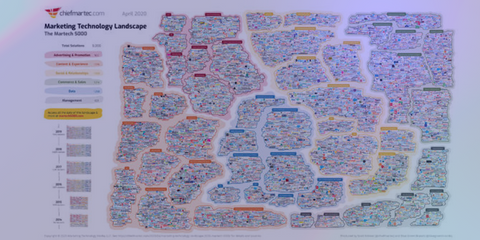In our Martech Insider newsletter, we spotlight a notable marketing technology each month. For our first newsletter of 2020, we are featuring Beamy, which helps large organizations navigate the explosion of MarTech within their operations through continuous SaaS usage analysis and a robust governance platform. Edouard Dossot, COO & Co-founder, has kindly agreed to answer our questions.
Hello Edouard, could you introduce Beamy and its positioning in a few words?
Edouard Dossot: Beamy positions itself as a comprehensive SaaS governance platform from A to Z. This includes detecting solutions, analyzing expenses & functional scopes, and assessing GDPR/security compliance risks. Beamy also acts as an interface between our clients and software vendors, facilitating collaboration and data exchange.
What problems do you solve?
Our clients' IT, DPO, and CDO teams face a loss of control due to the explosion of implemented SaaS solutions. While our clients use hundreds of paid SaaS solutions, over 50% are not reflected in their IT & GDPR repositories. These solutions are crucial for digital transformation and often handle personal data that is not properly managed.
Beamy addresses these challenges by offering a dynamic and cross-functional governance platform for the organization, used by all teams involved in digital transformation (business units, IT, compliance, procurement, etc.).
What are the main features?
The platform is divided into four functional modules:
-
Dynamic Application Repository: Continuously tracks all solutions used across departments (costs, usage, scope, personal data, contracts, business contacts, users).
-
GDPR & Security Actions Module: Provides a comprehensive view of compliance and GDPR risks for each SaaS software. This tracking is enabled through digitized GDPR & security forms completed directly by vendors via our partner platform.
-
Optimization Actions Module: Offers procurement and management teams optimization insights (e.g., duplicates, underutilization).
-
Evolution Actions Module: Provides business units with a catalog of available SaaS solutions on the market (with personalized recommendations) and a collaborative governance workflow for new solution implementation.






